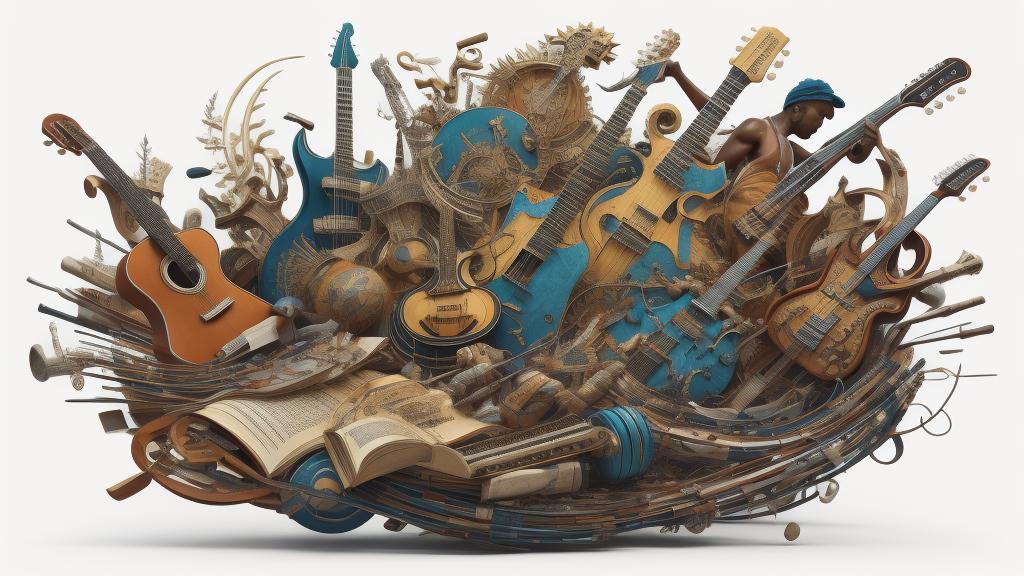In today's ever-evolving music landscape, cultural influences play a pivotal role in shaping trends. From the vibrant streets of Rio de Janeiro to the bustling clubs of South Korea, no corner of the world is left untouched by the force of cultural exchange in music. But what exactly drives these waves of auditory innovation, and how do they merge into the mainstream beats we hear today? In this exploration, we'll delve into the depths of cultural impact on music trends, unraveling the tapestry of sounds that define our era.
Let's start by taking a trip to Brazil, the land of samba and bossa nova. Brazilian music has long been a treasure trove of innovation, rich with history and rhythmic complexity. In recent years, genres like Funk Carioca (or Brazilian Funk) have catapulted onto the global stage. This genre, originating from the favelas of Rio, meshes electronic beats with local slang and stories, giving an authentic voice to its creators. The global fascination with Funk Carioca highlights how cultural stories, even from marginalized communities, can find universal appeal. The raw energy of this genre has been absorbed into the electronic dance music (EDM) scene, adding a layer of grittiness and authenticity that resonates with listeners worldwide.
On the other side of the globe, South Korea has emerged as a music powerhouse primarily through the wave known as K-pop. Over the past decade, K-pop has infiltrated global charts and dominated social media platforms. What sets K-pop apart is not just the catchy tunes but its entire cultural package—fashion, choreography, and a dedicated fanbase. Groups like BTS and BLACKPINK aren't just musicians; they're cultural ambassadors. Their impact on global music trends is profound, merging Western pop sensibilities with distinct Korean elements. From visual aesthetics to production quality, K-pop has raised the bar, influencing how global artists present their music.
Meanwhile, in the United States, the blending of African-American musical traditions with modern technologies has given birth to genres like Trap and Hip-Hop. Originating from the streets of Atlanta, Trap music has become a dominant force in global music. Characterized by heavy use of 808 drum machines, rapid hi-hat cymbals, and lyrical themes often focused on street life, Trap has found its way into mainstream pop, achieving significant crossover success. Artists like Travis Scott and Cardi B have brought Trap into the spotlight, drawing elements from their cultural backgrounds to create music that is both authentic and appealing to a broader audience.
African influences continue to be monumental, especially considering genres like Afrobeat and Afrobeats. The distinction between these two is often confused, but they play unique roles in shaping modern music. Afrobeat, pioneered by Fela Kuti, is a political and social commentary medium that combines jazz, highlife, and traditional African rhythms. Its legacy can be heard in the works of contemporary artists who use the genre's instruments and foundational beats. On the other hand, Afrobeats, a term encompassing new African music, offers a more pop-friendly, club-oriented variant, famous through stars like WizKid and Burna Boy. This genre has not only captivated ears worldwide but has reshaped how African culture is perceived globally, promoting unity and a positive image of the continent's vibrant youth.
Caribbean sounds, especially reggae and dancehall, have also been pivotal in influencing modern music. From Bob Marley’s anthems to the infectious grooves of Sean Paul, the Caribbean's impact is widespread. Reggaeton, a genre born from the melding of reggae with Latin influences, has exploded in popularity, with artists like Daddy Yankee and Bad Bunny leading the charge. The genre embodies the jubilant and sometimes politically charged spirit of Latin America, resonating with a global audience that enjoys its upbeat, danceable rhythms.
The influence of culture on modern music doesn't stop there. The fusion of different genres has led to hybrid styles like Latin Trap, a crossover between reggaeton and American trap music. This blending of styles is more than just a musical experiment; it reflects the increasingly globalized world in which we live. Artists no longer confine themselves to a single genre, drawing instead from a vast array of cultural soundscapes to create something truly unique.
Technology has also played a crucial role in facilitating these cultural exchanges. The accessibility of music production software and platforms like YouTube and Spotify has enabled even the most underground movements to gain traction. Algorithms serve up global hits to listeners, making it easier for a Funk Carioca track to follow a K-pop video in someone's playlist, thereby democratizing music consumption.
All these examples show that cultural influence isn't a one-way street but a dynamic, ongoing dialogue. The interaction of different cultural backgrounds creates a melting pot where new music trends can emerge, evolve, and inspire. As we move forward, it will be fascinating to see how these cultural exchanges continue to shape the music of tomorrow.
In conclusion, modern music trends are a vibrant mosaic of global cultural influences. Whether it's the raw energy of Brazilian Funk, the polished allure of K-pop, the gritty authenticity of Trap, the rhythmic beats of Afrobeat, or the infectious grooves of Reggaeton, each genre contributes to the rich tapestry of contemporary music. By understanding these cultural influences, we can appreciate the global connectivity that breathes life into the music we love today.
behind the beats: the influence of culture on modern music trends

